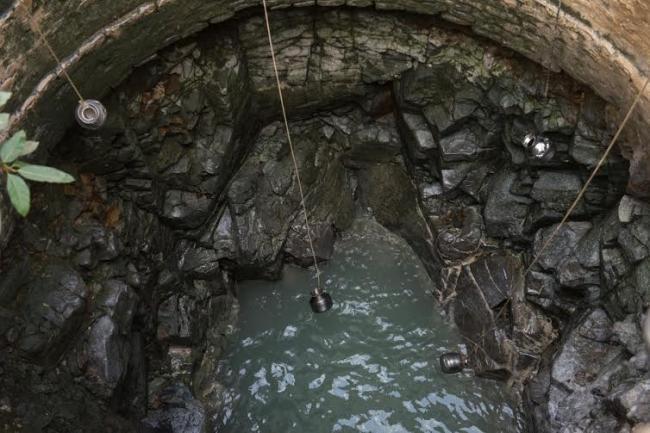NGO
330 million hit by drought, World Vision India starts relief operations
Just Earth News 25 Apr 2016, 12:19 pm Print

New Delhi/ Kolkata, Apr 22 (IBNS): Severe water scarcity across the country has led to 330 million Indians being hit by drought this year. World Vision India, a child-focussed relief and development organization has pitched in with relief response in 15 districts in the drought-hit states.
Bundelkhand region in the states of Uttar Pradesh & Madhya Pradesh, and Marathwada in Maharashtra are the worst affected, with government declaring 27,723 villages as drought hit in these areas alone.
About 600 villages in the state of Karnataka are facing severe drinking water crisis owing to one of the worst droughts since 1972. Rising debts due to multiple crops failure drove 216 farmers in Marathwada region near Mumbai to end their lives between January and March 2016 alone, according to government records.
The severe drought and acute water shortage has resulted in massive migration for employment which has taken a toll on the well-being of children who are forced to drop out of schools. Children in affected districts of Bundelkhand (UP & MP) are showing Vitamin A deficiency. Nearly 50% families have limited their regular intake of food since lentils have become unaffordable.
Kunal Kumar Shah, Director, Disaster Management, World Vision India said, “World Vision India programs in the affected areas are already in touch with the district and block administration and local NGOs. Depending on the context we will provide immediate relief like water, cattle fodder and even food ration if required, to the worst-affected communities."
He further added about World Vision India’s ongoing Joint Needs Assessments with the SPHERE partners in several locations in Maharashtra, MP, and AP stating, “To address this situation there has to be collaborative effort by various government departments, humanitarian agencies, donors and the people themselves through long-term initiatives. These would mitigate future possibilities of drought apart, from immediate drought relief in terms of government grants and schemes.”
Yavatmal district of Maharashtra which has one of the highest farmer suicide rates is home to more than 1800 villages that have been declared draught-affected this year. Almost all the farmers in the village are able to yield three harvests an year after World Vision India’s intervention through watershed programs, advance farming techniques and mixed cropping.
Yavatmal district of Maharashtra which has one of the highest farmer suicide rates is home to more than 1800 villages that have been declared draught-affected this year. Almost all the farmers in the village are able to yield three harvests an year after World Vision India’s intervention through watershed programs, advance farming techniques and mixed cropping.
Indrapal, the Sarpanch said, “Since 2008, we have enough drinking water due to the ground level water recharge through these watershed programs. Currently, the village has water for irrigation and livestock feeding purposes.” The NGO hopes to scale up these successful initiatives in other affected regions as well.
Depending on the availability of funds, World Vision India is hoping to reach out to 183,119 households affected by drought in 15 of their project locations. Some of their successful initiatives include construction of water tanks, check dams and pumps and crop diversification initiatives for farming through the past year. The projects in drought-hit areas have also begun working with the communities through cash-for-work programmes to provide families with a source of income, as well as prepare for the upcoming monsoon rains.
Depending on the availability of funds, World Vision India is hoping to reach out to 183,119 households affected by drought in 15 of their project locations. Some of their successful initiatives include construction of water tanks, check dams and pumps and crop diversification initiatives for farming through the past year. The projects in drought-hit areas have also begun working with the communities through cash-for-work programmes to provide families with a source of income, as well as prepare for the upcoming monsoon rains.
More NGO





-1763561110.jpg)
